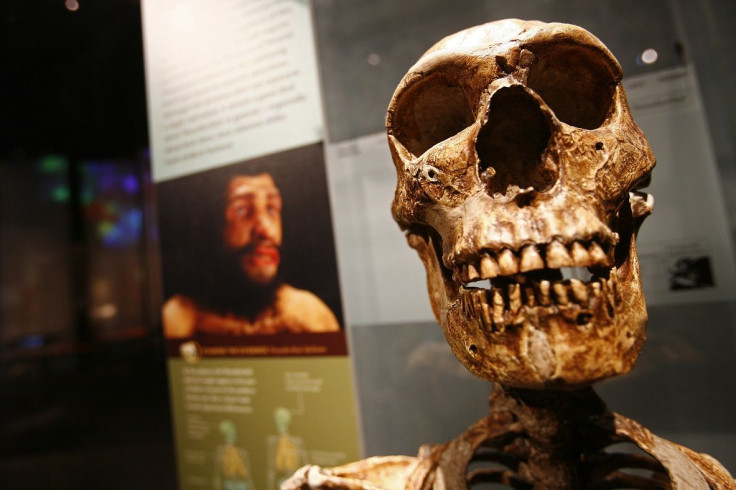180,000-Year-Old Mutation Allowed Humans to Become Vegetarians and Move Out of Africa

Early humans were able to move from Africa after a single genetic mutation allowed them to become vegetarians, scientists claim.
The switch, which allowed humans to process vegetables, meant that humans were able to move away from water sources and spread across the continent.
A team of geneticists compared DNA sequences from a variety of people around the world to see how different populations relate to one another and when they have gone their separate ways. The scientists found that a key genetic variant gave humans the ability to convert fats from plants into essential nutrients for the brain.
The study, published in the journal Public Library of Science (PLOS), suggests that the gene mutation would have allowed Homo sapiens to leave the bodies of water in central Africa where they ate fish.
A team of scientists from the Wake Forest Baptist Medical Centre in North Carolina, the Johns Hopkins University School of Medicine in Baltimore and the University of Washington School of Medicine, Seattle analyzed the genes of 1,092 individuals representing 15 different human populations that were sequenced as part of the 1000 Genome Project and 1,043 individuals from 52 populations from the Human Genome Diversity Panel database.
Homo sapiens first appeared 180,000 years ago but stayed around bodies of water in central Africa for almost 100,000 years. Researchers explained that the location was critical because it had a ready supply of fish and shellfish that provided the necessary fatty acid Docosahexaenoic acid (DHA) necessary for brain development.
"This may have kept early humans tethered to the water in central Africa where there was a constant food source of DHA," study author Doctor Floyd Chilton, professor of physiology and pharmacology and director of the Centre for Botanical Lipids and Inflammatory Disease Prevention at Wake Forest Baptist, said in a statement.
"There has been considerable debate on how early humans were able to obtain sufficient DHA necessary to maintain brain size and complexity. It's amazing to think we may have uncovered the region of genetic variation that arose about the time that early humans moved out of this central region in what has been called the 'great expansion,'" he added.
The change meant that humans no longer had to rely on just one food source, fish, for brain growth and development.
Lead researcher Joshua Akey of the University of Washington said that the conversion was particularly important because the genetic variation happened before there was organized hunting and fishing, which could have provided more reliable sources of necessary fats. "The power of genetics continually impresses me, and I find it remarkable that we can make inferences about things that happened tens of thousands of years ago by studying patterns of genetic variation that exist in contemporary populations," he added.
In 2011, researchers found that people of African descent have a significantly higher frequency of the gene that converts plant-based fatty acids to polyunsaturated fat. This gene causes inflammation, which may be why African Americans have higher rates of hypertension, type 2 diabetes, stroke, coronary heart disease and certain types of cancer.
"The current observation provides another important clue as to why diverse racial and ethnic populations likely respond differently to the modern western diet," Chilton said.



























